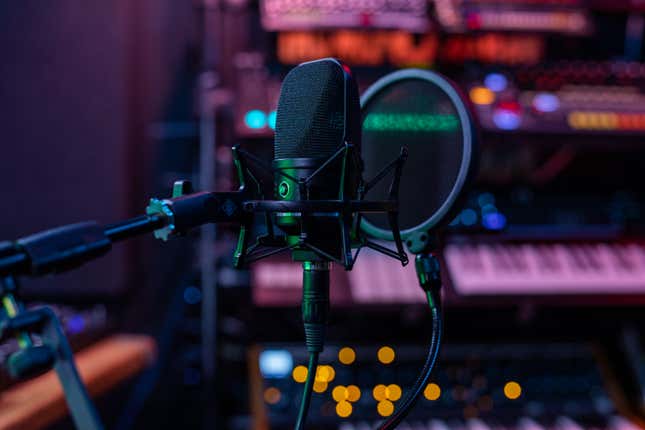
In This Story
Major record labels are coming after artificial intelligence music startups, alleging “en masse” copyright infringement.
Universal Music Group (UMG), Sony Music Entertainment, and Warner Records are among a group of record labels suing AI music startups Udio and Suno for allegedly using work from artists without consent, Billboard first reported.
The lawsuits, led by the trade organization Recording Industry Association of America (RIAA), allege the AI startups are training their models on copyrighted sound recordings from artists of different genres and time periods “at an almost unimaginable scale,” according to Billboard. The music generated by the startups’ models could “saturate the market with machine-generated content that will directly compete with, cheapen and ultimately drown out the genuine sound recordings on which [the services were] built,” the complaints say.
“These are straightforward cases of copyright infringement involving unlicensed copying of sound recordings on a massive scale,” RIAA chief legal officer Ken Doroshow, said in a statement.
Both Suno and Udio allow users to generate music from text-prompts. Udio’s model was used to create the viral “BBL Drizzy” diss track. In the lawsuit against Udio, which was filed in U.S. District Court for the Southern District of New York, the labels say neither the startup, “nor any other generative AI company, can be allowed to advanced toward this goal by trampling the rights of copyright owners.”
The “goal” in this case, is becoming “the dominant AI music generation service.” In April, the startup raised $10 million.
Neither the RIAA, Udio, nor Suno immediately responded to a request for comment. The RIAA is seeking as much as $150,000 in damages “per work infringed.”
In May, Suno announced it had raised $125 million in funding from partners including Lightspeed Ventures and Founder Collective. The startup also has a partnership with Microsoft, and is available through Microsoft Copilot. The complaint against Suno, which was filed in U.S. District Court for the District of Massachusetts, says the company said its training data was “confidential business information,” when it was accused of using copyrighted work.